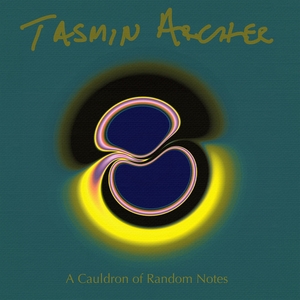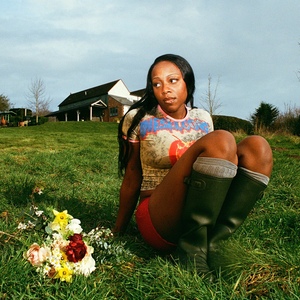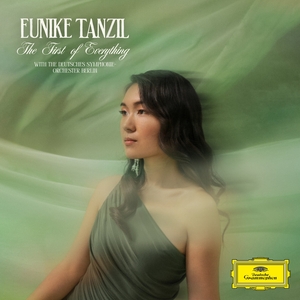Album review overview: Ice Cube, Baxter Dury and more
Dozens of new albums arrive at Maxazine’s editorial staff every week. There are way too many to listen to them all, let alone review them. It ensures that too many albums are left behind. And that’s a shame. That is why today we post an overview of albums that arrive at the editors in short reviews.
Ice Cube – Man Up
After a year of mounting social tensions, Ice Cube returns with his twelfth studio album, a direct sequel to 2024’s “Man Down”. “Man Up” explicitly calls for responsibility, both individual and collective. The veteran rapper proves that his voice remains relevant after four decades. With just one guest contribution from Scarface, Cube keeps the focus sharp on his message. Tracks like “Before Hip Hop” counter the myth that rap creates violence, whilst “California Dreamin'”, built on Patrice Rushen’s classic “Forget Me Nots”, punctures the American dream as “It Was A Good Day” once did. The production remains faithful to his early-90s roots, which feels nostalgic but simultaneously undermines contemporary relevance. Cube’s unvarnished masculinity and political stances will charm some and repel others. It’s raw, unpolished and refuses to make concessions to modern trends. (Elodie Renard) (7/10) (Lench Mob Records/Hitmaker)
Tasmin Archer – A Cauldron of Random Notes
More than thirty years after “Sleeping Satellite”, Tasmin Archer proves that artistic maturity bears fruit. On her fourth studio album, the now 62-year-old singer displays a musical vision that only now comes to full bloom. Opener “Vibration of Life” blends dubby gospel with surprising chord changes, whilst the rest of the set emphasises her love for varied arrangements and careful pacing. After the intimacy of earlier works, this album sounds as if Archer has finally assembled the puzzle pieces of her artistic identity. The Tracy Chapman and Seal comparisons from the nineties weren’t wrong, but incomplete – the album also contains distinctive elements from the seventies and eighties that shouldn’t work together, but do. Tracks like “Silent Witness” and “Free Fall” showcase her skill in emotional authenticity without ever feeling forced. (Jan Vranken) (6/10) (Parlophone)
Baxter Dury – Allbarone
Following a meeting with producer Paul Epworth at Glastonbury, this masterpiece emerged – Dury’s most coherent adventure since “Prince of Tears”. The ninth studio album transforms his characteristic cockney cynicism to the dancefloor without sacrificing his sharp observations. With impressive critical scores and numerous five-star reviews, “Allbarone” exceeds all expectations. Title track “Allbarone”, named after the famous wine bar chain, immediately shows Epworth’s influence: Dury’s deadpan delivery is suddenly positioned in a club, like someone getting existential on a crowded dancefloor. Highlights such as “Mockingjay” (inspired by “The Hunger Games”) and “Schadenfreude” prove that increased tempo and introspection work perfectly together. It’s not often that an artist creates their best work on their eighth album, but with Dury this rings completely true. A late-career renaissance that raises the bar once again, comparable to how “Sleeping Satellite” once did for Tasmin Archer. (Jan Vranken) (8/10) (Heavenly Recordings)
Rachel Chinouriri – Little House (EP)
In contrast to the dark themes of her acclaimed debut album “What a Devastating Turn of Events”, this four-track EP radiates pure joy about new love. After a year of BRIT nominations and sold-out shows, Chinouriri displays her versatility. Singles like “Can We Talk About Isaac?”, an ode to her new partner, bubbles over with effervescent energy and sunny indie pop anthems where Chinouriri seems to excel effortlessly. The production by Apob, supplemented by Chloe Kraemer, gives each track its own character without losing cohesion. Although “Judas (Demo)” changes the tone and mentions death, this works more as a reminder of the strong foundations upon which “Little House” is built. With a thirteen-minute runtime, the EP functions perfectly as an appetiser between albums, whilst consolidating Chinouriri’s artistic growth. Just as “So My Darling” once marked her breakthrough, this EP proves that happiness can be as inspiring as trauma. (Elodie Renard) (7/10) (Parlophone)
Eunike Tanzil – The First of Everything
With “The First of Everything”, Indonesian composer-pianist Eunike Tanzil presents a remarkably mature debut album that takes the listener along twelve musical snapshots of life-defining “first times”. As the first female Asian composer at the prestigious Deutsche Grammophon label, Tanzil carries a heavy responsibility, but succeeds in fulfilling it with flair. The Deutsches Symphonie Orchester Berlin under the direction of Anna Handler brings Tanzil’s orchestral vision to life in the acoustically perfect Teldex Studios. The diversity immediately catches the eye: from minimalist piano passages to soaring cinematic orchestral moments. The highlight undoubtedly forms “Genesis”, a masterful homage to John Williams in which Tanzil shows her love for cinematic orchestral language – you hear genuine kinship with the “Imperial March” from Star Wars in the dramatic build-up. Tanzil proves her versatility by playing not only piano but also celesta, glockenspiel and even snare drum. The collaboration with cellist Sophie Kauer on “Aria” and “Metamorphosis” brings a warm, human dimension. Particularly moving is “Remembering”, a melody cherished for ten years for her deceased grandmother that forms the emotional core of the album. There are scarcely any criticisms of this polished debut, although some transitions between pieces feel somewhat abrupt. The dreamy “Reverie”, inspired by Ravel, shows Tanzil’s respectful handling of classical tradition whilst developing her own voice. The album proves that orchestral music is very much alive and can tell new stories for a modern generation. A lovely classical album for people not accustomed to listening to classical music. (Jan Vranken) (8/10) (Deutsche Grammophon)
![]()









